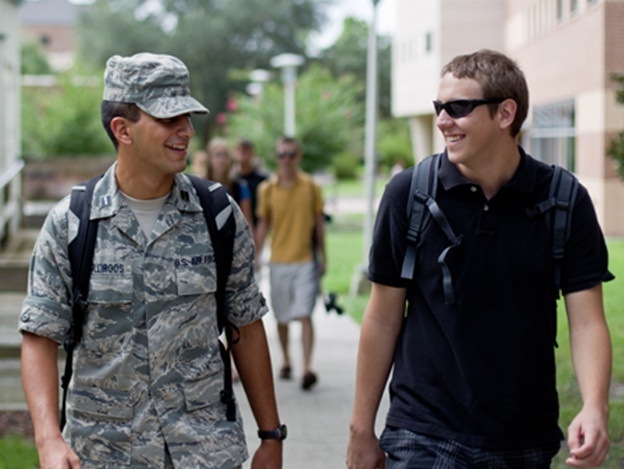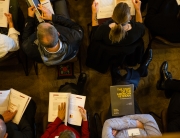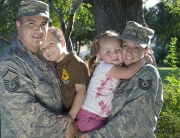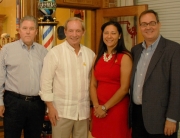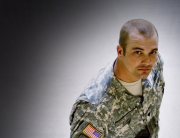by Claudia Bustamante
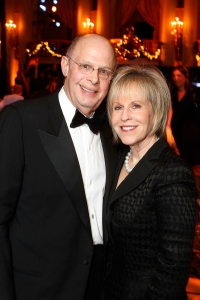 Pamela and Mark Mischel have been involved with the USC School of Social Work for over a decade—first as proud parents and now as one of the school’s first supporters of the Yellow Ribbon Scholarship Fund.
Pamela and Mark Mischel have been involved with the USC School of Social Work for over a decade—first as proud parents and now as one of the school’s first supporters of the Yellow Ribbon Scholarship Fund.
“Even though we don’t have any direct experience with the military, these issues are very near and dear to our hearts,” said Pamela, who also sits on the school’s Board of Councilors.
“These young men and women have given so much, and we want to do our small part to be able to help,” Mark said.
Already early donors to the school’s military social work program, the Mischels’ military-focused philanthropy has continued with recent donations that have established the Pamela and Mark Mischel Family Endowed Yellow Ribbon Scholarship Fund, which aims to help student veterans and military spouses pursuing military social work in the school’s Master of Social Work program.
In 2009, the USC School of Social Work became the first private research university to develop a military social work program that aims to graduate students who are prepared to meet the unique needs of active-duty service members, veterans and their families. As more service members return home from deployments, social workers have increasingly been the ones who diagnose and treat the issues that arise during a transition home. This has created a need for behavioral health providers who understand military culture.
The school’s program is attractive to veterans and military spouses and dependents who already understand the unique challenges associated with the military and are interested in careers that will help others in similar situations. To that end, the school’s Yellow Ribbon scholarship program helps provide resources for veterans and military spouses who are pursuing a higher education, even to those who do not meet the Department of Veterans Affairs eligibility requirements.
Clinical Professor Anthony Hassan, who joined the school in 2009 as the inaugural chair of the military social work program, said the Mischels’ generosity was inspiring. “I am so moved by their gift because it is given by a family that has not served but clearly values the service of those who have and is committed to helping,” he said.
“These scholarships will have tremendous impact beyond helping individual students. Not only will it allow students to focus on their studies without the distraction of financial stress, but it will create a multiplier effect by advancing military social workers who will then help other veterans transition from war to community.”
The school’s military social work program also consists of the Center for Innovation and Research on Veterans & Military Families, which informs the MSW curriculum and has developed virtual technology where students can practice some of the skills they are taught in the classroom, like Motivational Interviewing Learning Environment and Simulation, also known as MILES. MILES is an interactive teaching tool that allows students to become skilled in core concepts of therapy without the fear of alienating a veteran, active service member or military family member.
It was this type of innovation that inspired the Mischels, parents of Alyson Mischel, MSW ’00 and adjunct assistant professor.
“We were really impressed that the school was creating a vehicle for the first contact with a veteran,” Mark said.
The Mischels said they hope their gift will encourage more people to go into the field of social work, especially veterans and military spouses whose shared experience might help these populations seek help and necessary services.
“If these people wanted to become social workers, then we wanted to help them do that,” Pamela said. “This is our small way of giving back to them for the services they’ve done for our country.”


